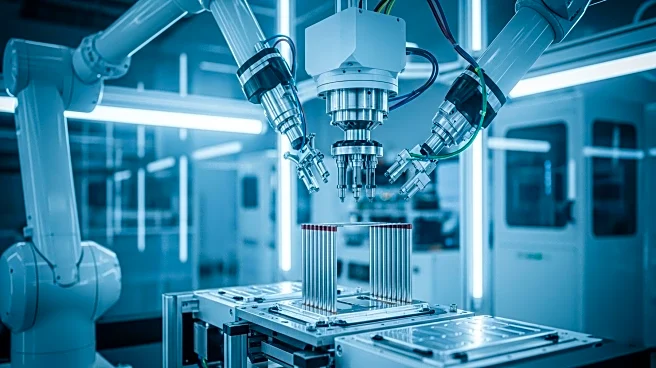What's Happening?
Sumitomo Metal Mining Co., Ltd. and Toyota Motor Corporation have announced a joint development agreement focused on the mass production of cathode materials for all-solid-state batteries. These batteries are intended for use in battery electric vehicles (BEVs) and are expected to offer significant advantages over current liquid-based batteries, including smaller size, higher output, and longer lifespan. The collaboration, which began around 2021, has led to the development of a highly durable cathode material using Sumitomo Metal Mining's proprietary powder synthesis technology. This new material is designed to address issues such as cathode material degradation during repeated charging and discharging cycles. The companies aim to launch BEVs equipped with these advanced batteries by 2027-28.
Why It's Important?
The collaboration between Sumitomo Metal Mining and Toyota represents a significant step forward in the development of next-generation battery technology. All-solid-state batteries promise to enhance the performance of electric vehicles by providing longer driving ranges, shorter charging times, and higher output. This technological advancement could accelerate the adoption of electric vehicles, contributing to a reduction in carbon emissions and supporting global efforts toward a carbon-neutral society. The successful mass production of these batteries could also position Toyota as a leader in the electric vehicle market, potentially influencing industry standards and consumer expectations.
What's Next?
Both companies will continue to focus on improving the performance, quality, and safety of the cathode materials while also working to reduce production costs. The goal is to achieve the world's first practical use of all-solid-state batteries in BEVs. This development could lead to significant changes in the automotive industry, with potential impacts on manufacturing processes, supply chains, and market dynamics. Stakeholders in the electric vehicle sector will likely monitor this collaboration closely, as its success could set new benchmarks for battery technology and electric vehicle performance.








